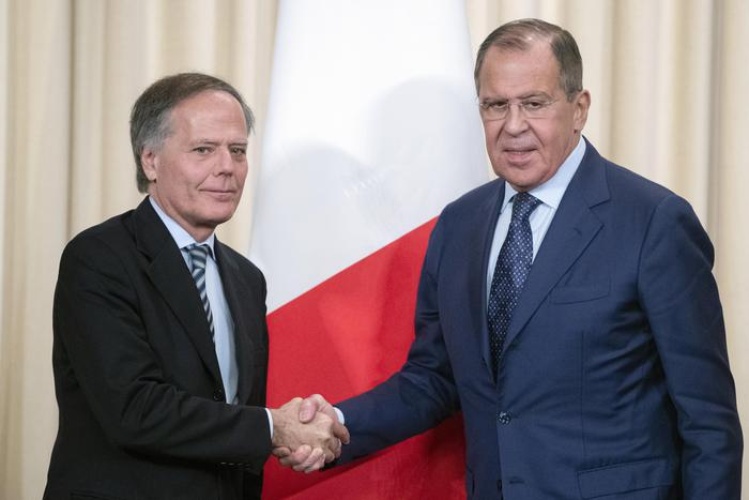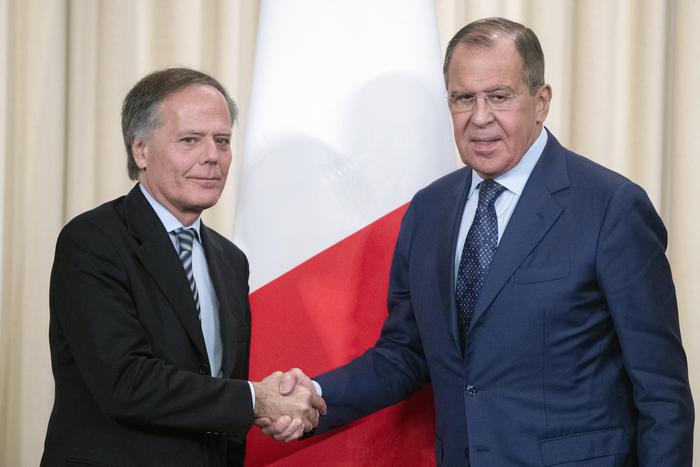Haftar has steadily risen to power in recent months, applying pressure to Tripoli’s government and hindering its international credibility.
In the beginning, Italy and the UN were counting on Al Serraj to solve the Libyan crisis.
However, after some initial progress, they slowly realised that Al Serraj was not capable of mending the collapse of Libya’s society.
Mostly due to the US’ disengagement in the Mediterranean area, Al Serraj’s failure also stems from a successful encircling tactic imposed by Haftar, who, with the support of Egypt and Russia, has conquered large portions of territory and extended his power over several militias.
Faced with this unexpected situation, Italian diplomats realised that in order to save Tripoli – home to Rome’s chief economical interests – and stabilise Libya, a positive dialogue with Haftar must take place.
However, Italy’s delay in building a solid relationship with Tobruk and France’s interference in Italy’s attempt to establish ties with Haftar, have created problems for Rome.
Both eager to play the protagonist in the stabilisation of Libya (and what comes afterwards), Italy and France have developed two different strategies to end the country’s crisis.
While Macron is pushing to have a democratic election in December, Rome believes that before the election takes place, the country should be completely pacified.
In Italy’s plan, the first step towards peace is the conference to be held in Sicily at the beginning of November.
However, the conference will only be successful if Haftar attends.
Prepared to achieve its goal at any cost, Italy began creating an international mosaic to pool efforts and help convince Haftar to participate.
Once Italy’s strategy obtained the US’ support in July, Rome started working on rebuilding a stronger relationship with Egyptian President Abdel Fattah Al Sisi.
After a while, Italy’s diplomatic efforts were rewarded and Italian Minister of Foreign Affairs Enzo Moavero was able to meet with Haftar in Tobruk.
However, there was still a piece missing in the mosaic.
That piece was a green tile, representing the green light from Moscow, who also needs to attend the conference.
Therefore, Moavero last week flew to Russia to meet with the country’s foreign minister, Sergej Lavrov, and gain support from Cremlin.
Moavero made the most of the historical relationship between the two countries to ensure the meeting was successful.
Lavrov himself acknowledged that Russia considers Italy “one of its most important political and economical partners in Europe”.
He added that the relationship between Russia and Italy is solid, “despite the existing constraints due to Italy’s involvement in the Euro-Atlantic structures”.
“The Italian authorities are trying to have a balanced and a long-term approach with our country,” Lavrov said, adding that this is a way to maintain and develop bilateral ties between Russia and Italy “at the highest levels”.
A satisfied Moavero then officially invited Russian President Vladimir Putin to the conference on Libya in Sicily.
Putin’s presence would mean Italy’s strategy would be fully supported and therefore have a good chance of prevailing over France’s.
However, immediately after Moavero’s visit in Russia, news that France is not alone arrived from across the channel.
According to a confidential report published by The Sun, the Queen’s secret services warned British Prime Minister Theresa May that Russia’s plan is to turn Libya into a new Syria.
Russia immediately denied the accusation, adding that the current situation in Libya was not caused by them, but by the military intervention of Britain and its allies in 2011.
And while France remained silent, it is clear that the message sent from the UK is also a warning for Italy, whose interests in the Mediterranean are traditionally viewed with suspicion and concern by Britain and France.
They know that Italy, with its ambitious diplomatic operation, is trying to make up for lost ground after the disastrous events which occurred in Lybia in 2011, and is aiming to make Rome the new cornerstone of Mediterranean politics and the point of contact between Moscow and Washington.












